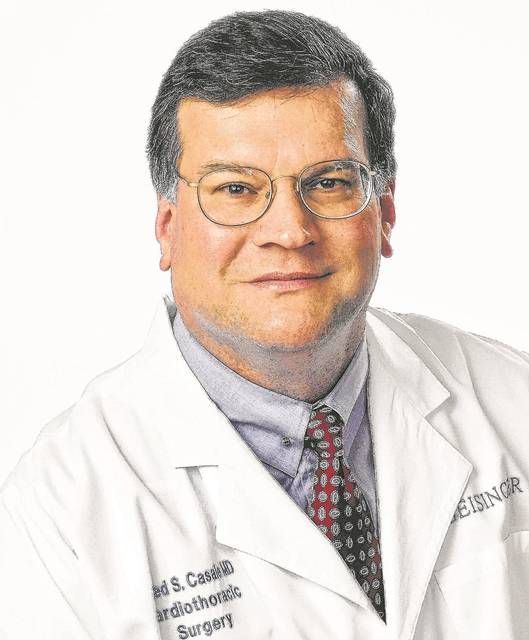Click here to subscribe today or Login.
My daughter Kate has had Rowan and now almost 2-year-old Eve taking swimming lessons since well before they could walk. Once, when swim instructors were handing kids from one group to another, Kate heard Eve’s teacher tell the new one that Eve “Was a mermaid.” Now they had group names and colors, but mermaid wasn’t one. Kate approached the teacher and asked what she meant when she called Eve a mermaid. The instructor said, “She’s a natural in the water, like a little mermaid.”
The only problem is that she doesn’t seem to mind swallowing a gulp of water at the pool, beach or tub!
Although summer officially ends on Sept. 23, we are likely to see a few more hot days, backyard barbecues and outdoor adventures as we navigate the transition to fall in Northeastern Pennsylvania.
But just because the nights are getting cooler and autumn décor is taking over local stores and porches doesn’t mean we can completely turn our minds away from certain summer safety concerns.
A recent outbreak of parasite-related disease in Garfield County, Colo., reminds us that we need to be diligent as we engage in late-summer and early-fall activities. Four confirmed cases of cryptosporidiosis, a diarrheal disease that results from ingestion of the cryptosporidium parasite, have been linked to a pool at Glenwood Hot Springs resort.
The CDC issued a warning about cryptosporidiosis in late-June when public and private swimming areas were most highly populated. The parasite has a high tolerance to chlorine and can live in recreational bodies of water for up to seven days.
Cryptosporidia live in the gut of infected humans and animals. Infected hosts shed the parasites in their stool once they reach the symptomatic stage of the disease and can shed 10 million to 100 million microscopic parasites in one bowel movement. Another person can become infected by swallowing only 10 parasites in contaminated water.
The main symptom of cryptosporidiosis is watery diarrhea, but symptoms of stomach cramps or pain, dehydration, nausea, vomiting, fever and weight loss can also arise. Rarely is the disease fatal, but it can be dangerous for young children, pregnant women and people with severely weakened immune systems.
But since this disease is primarily spread through recreational water and swimming season is all but over, it shouldn’t be a concern, right?
Wrong.
First of all, most cases of “crypto” occur in the summer and early fall, so if there are some remaining hot weekends, we still might see significant populations of people jumping into their local ponds and lakes or taking a dip in a neighborhood pool that hasn’t yet been closed.
Furthermore, we can’t think of swimming as a warm-weather outdoor-only activity. Indoor resort pools, indoor waterparks, rec center pools, hot springs and hot tubs can all be breeding grounds for this infectious disease. So, whether you’re taking the kids for swimming lessons or traveling to a part of the country where you can enjoy some natural hot springs, you should be aware that crypto can be lurking.
Finally, crypto is not dependent on water. It can be transmitted from person to person or animal to person. Outbreaks have been linked to contaminated food and drinking water, daycare centers or other childcare hubs and any place where children come in contact with animals. Touching the mouth with contaminated hands is enough to ingest the parasite.
As the festive fall season begins, farms, pettings zoos, hayrides and pumpkin patches can all be places where friendly animals are part of the attraction and seasonal fun. They can also be places where crypto can spread like wildfire if proper precautions are not taken.
Practicing good hygiene is the most important line of defense against crypto. Washing hands with soap and water frequently, but especially in situations where you may be exposed to public water sources or animals, can help keep you and loved ones healthy. Alcohol-based hand sanitizers are not effective against the parasite.
Children who are sick with diarrhea should be excluded from childcare facilities until diarrhea has subsided. Toys and surfaces at childcare facilities should be sanitized to prevent germs from spreading easily.
Anyone who has had diarrhea should wait two weeks after diarrhea has stopped before swimming or using a hot tub, because parasite shedding can continue after symptoms have subsided. People of all ages should try to avoid swallowing water in public pools, lakes, hot springs and other recreational water areas. Young children should be taken to bathrooms or have their diapers checked every 60 minutes, and diapers should never be changed waterside.
Commercially bottled water is the safest hydrating option when you feel you’re in an area that might be contaminated.
Overall, try to enjoy what remains of your summer and the beginning of autumn, but don’t let crypto catch you off guard. Rare indeed but something to be aware of none the less.








